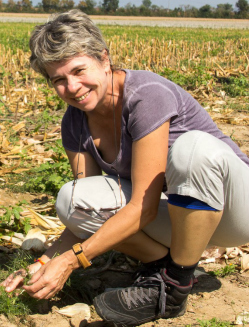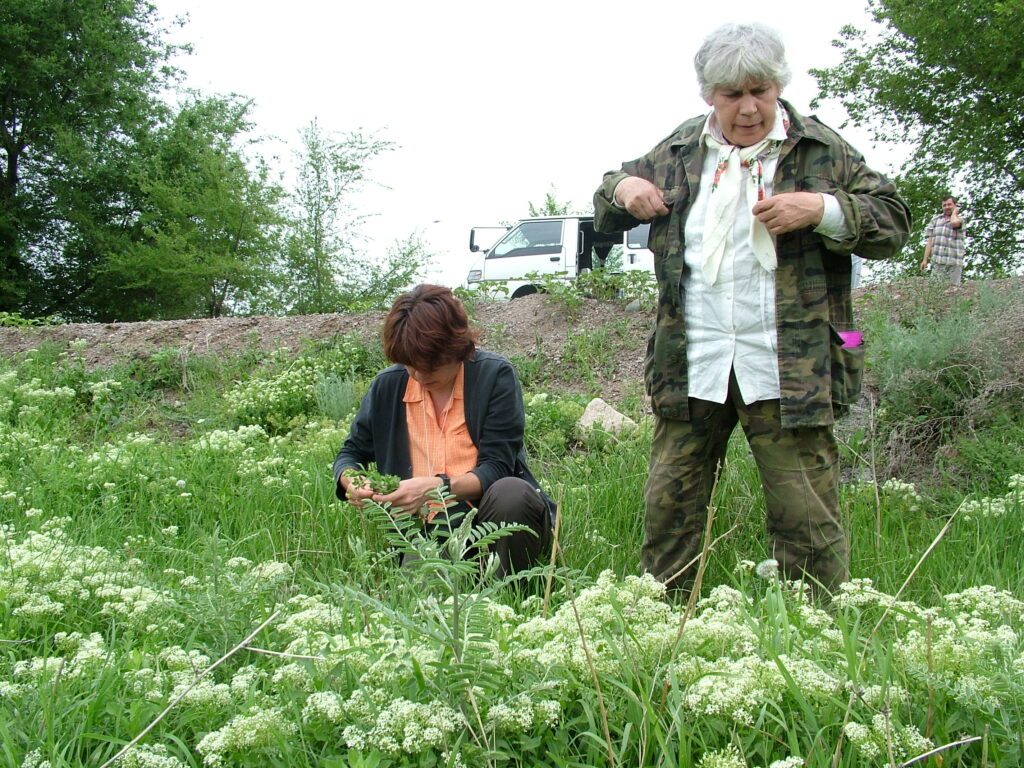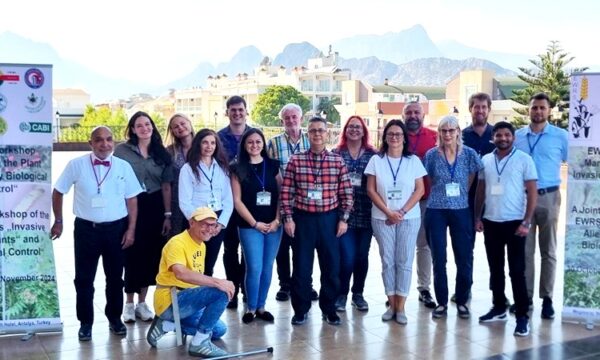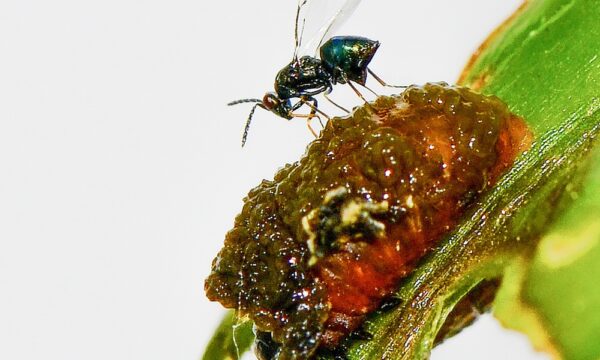Female scientists have the potential to play an important role in the future of agriculture, however, a significant gender gap persists, particularly in agriculture and science.
Gender and youth is a key area for CABI. Constituting to Sustainable Development Goal 5, CABI’s goal is to create opportunities for women and young people in agriculture.
In recognizing ‘International Day of Women and Girls in Science,’ we spoke to some of CABI’s female scientists whose invaluable work helps to close this gap, empower women in science and overcome problems in agriculture and the environment.
In this blog, Hariet Hinz, CABI’s Global Director for Invasive Species, talks about her love for science, her invasives work and her advice for young female scientists.

So, science. Was it something that you’ve always been interested in?
From a very young age, I was interested. We had a huge garden and I was interested in plants, growing plants and getting my hands dirty! It was my passion, so it was clear when I looked at what to study, I knew it would either be agriculture or horticulture.
I had a very good teacher in pest management who taught us a lot about biocontrol, the different pests that you can find. When out in the field, that’s when I became more interested in biocontrol.
And what is it that you love most about science?
As a child, I really loved to do puzzles. Science is a little bit like doing a puzzle. It’s extremely satisfying when you find a small piece that fits. Science is huge, it’s an enormous puzzle and it’s changing all the time, so it’s a never-ending puzzle.
And the field of invasive species – what drew you to that?
Well, my expertise, and what I’ve been doing for many years, is actually classical biocontrol of invasive plants. So, really is my passion, and when I started working at CABI in Switzerland.
We had a lot of projects on invasive plants in extensively managed pastures, grasslands for North America. It was just amazing to see thousands and thousands of hectares invaded by one plant species.
As a female scientist, you’ve worked at CABI for 30 years which is an accolade. You will have built up vast amounts of experience and expertise but what about highlights? Are there any that stand out?
The field trips, of course – they were just amazing! One of the most amazing field trips was to Kazakhstan, sleeping in a tent and looking at plants and insects from the morning to the evening – it was just a great experience.

At CABI, you are Global Director of Invasive Species which covers a huge range of projects and programmes. Are there any key ones that you’re working on at the moment?
We have four sections dealing with invasive species. Invasive plants, risk analysis which looks at predicting new invasive species. and ecosystem management which is a more holistic approach to invasive species. We then have a section that focuses on development projects, including programmes such as Plantwise.
What about challenges. Have you come across any while working in the field of invasive species?
It’s important to mention that it can feel like the work of the Greek myth, Sisyphus, having to roll a big rock up a hill, then as he reaches the top, it rolls back and he has to start all over. When you manage invasive species, you control one and then another one comes up and with global trade, the rate of invasion continuously accelerates.
What advice would you give to young girls wanting to work in the field of invasive species or science in general?
I would ask them if it’s really their passion, if it’s really what they want to do, because, as we say in German, you need a long breath to work in this field. You shouldn’t be disappointed when it doesn’t work right away. In invasive species management, it can take many, many years before you see a success.
But if the answer is yes, then it’s hard work. Being persistent, being open for opportunities that arise and moreover, don’t be afraid to ask questions. There are no stupid questions.
Also, don’t be afraid to approach people directly, even well-known people in the field. You will see we urgently need younger female scientists in this field. So, I’m sure they will find that they’re knocking at very open doors.
Thank you, Hariet Hinz, for your sharing your experiences and insights with us.
Further reading:
Find out more about CABI’s work in invasive species here and on our dedicated site. For more information about CABI’s aims and work in gender and youth, you can read more here.
Enjoy reading more interviews with other CABI female scientists:
Chapwa Kasoma – Post-doctoral Research Fellow in Invasive Species
Malvika Chaudhary – Regional Coordinator for Plantwise in Asia
Listen to the podcast
Hariet’s podcast is available now. You can also listen to a special podcast on toadflaxes, a project Hariet has been working on for many years.
Related News & Blogs
Biological control in action: Zambia’s field days on fighting fall armyworm
Experts from CABI recently held two field days and an expo in Zambia, showcasing innovative approaches to pest management to 584 farmers, agro-dealers and other stakeholders to help raise awareness of approaches to tackle the invasive fall armyworm (Sp…
11 June 2025




